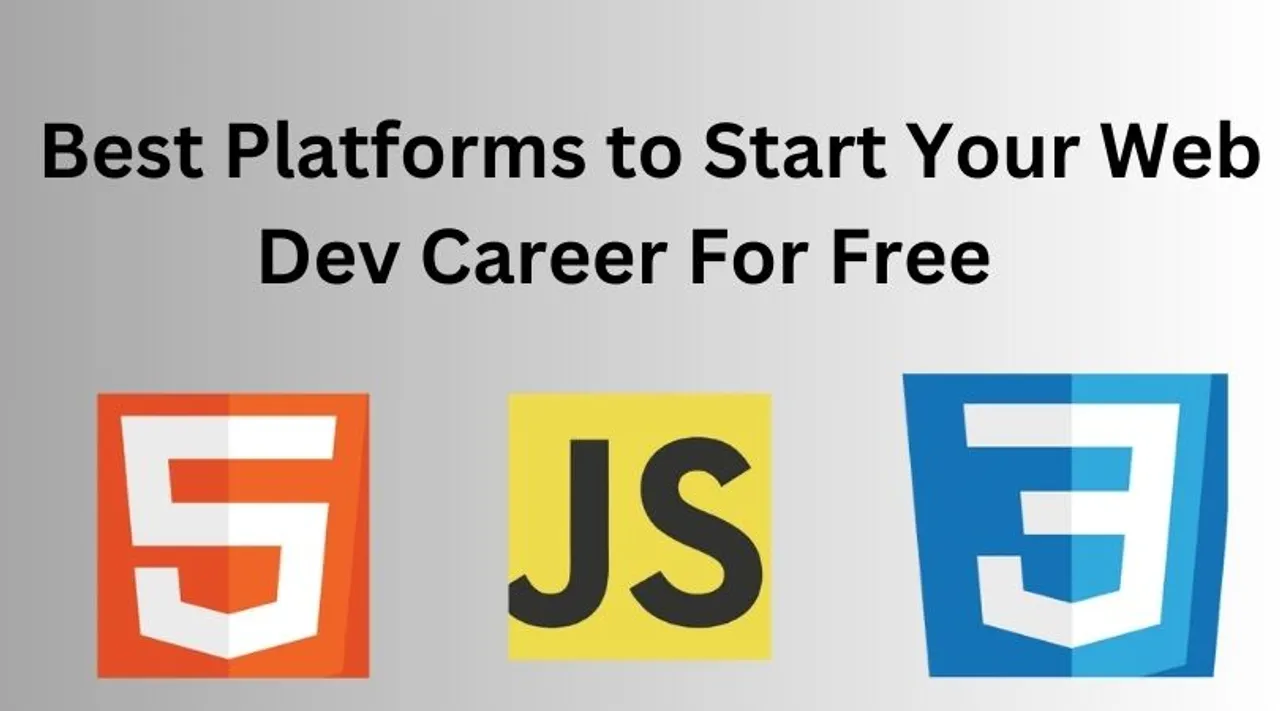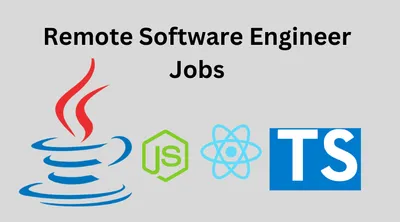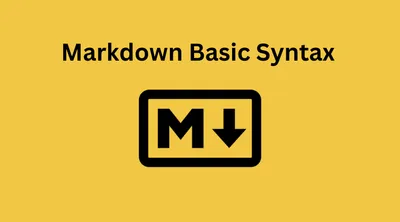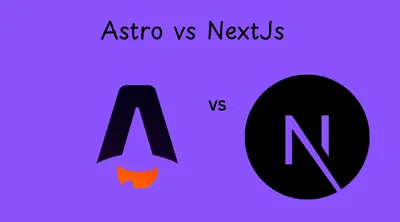Best Platforms to Learn Web Development for Free: Your Ultimate Guide for 2025
Discover the top free platforms to learn web development in 2025. This comprehensive guide covers interactive coding challenges, full-stack curricula, video lectures, and more to help you kickstart your web development journey.

The journey to becoming a proficient web developer can be very exciting and challenging. In 2025, there are countless number of free resources which are available online that will help aspiring developers learn everything from the basics of HTML and CSS to advanced JavaScript frameworks and backend technologies—all without spending a dime. This guide provides an in-depth look at the best platforms to learn web development for free, offering detailed insights into what each resource has to offer, how they can benefit your learning journey, and practical tips on how to get the most out of them.
Why Free Learning Platforms Matter
For many beginners, and even seasoned developers looking to brush up on new technologies, free learning platforms are very important. They lower the entry barrier to the tech industry by offering quality education at no cost. Here are a few reasons why free learning resources are so crucial:
- Accessibility: Free platforms ensure that anyone with an internet connection can learn web development, regardless of their financial situation.
- Up-to-Date Content: Many free resources are constantly updated to reflect the latest industry trends and technologies.
- Diverse Learning Styles: Whether you prefer interactive coding challenges, video tutorials, or reading documentation, there’s a free resource out there that fits your learning style.
- Community Support: Platforms often come with vibrant communities of learners and mentors who can help answer questions and provide guidance.
Top Platforms to Learn Web Development for Free
Below are some of the most popular and effective platforms for learning web development at no cost.
1. freeCodeCamp
freeCodeCamp is one of the most well-known free platforms for learning web development. It offers a self-paced curriculum that covers everything from basic HTML and CSS to advanced JavaScript frameworks and backend development.
What It Offers
- Interactive Challenges: FreeCodeCamp provides hands-on coding challenges that help you practice as you learn.
- Project-Based Learning: After completing each section, you build projects that not only reinforce what you’ve learned but also serve as portfolio pieces.
- Certification: Although the courses are free, you can earn certificates to showcase your achievements.
- Community Support: With an active forum and chat rooms, you can connect with other learners and get help when you’re stuck.
How It Helps:
By working through freeCodeCamp’s curriculum, you gain both theoretical knowledge and practical skills. The platform’s project-based approach ensures that you can demonstrate your abilities through real-world applications.
2. The Odin Project
The Odin Project is another fantastic resource that offers a comprehensive curriculum covering both front-end and back-end web development. It’s entirely open-source and community-driven.
What It Offers
- Full-Stack Curriculum: The Odin Project covers HTML, CSS, JavaScript, Git, NodeJS, databases, and more. This makes it ideal if you want to learn full-stack development.
- Project-Based Learning: Like freeCodeCamp, it emphasizes building projects to solidify your learning.
- Community and Mentorship: The platform has an active community that provides support and feedback, which is invaluable when you’re just starting out.
How It Helps
The Odin Project is particularly well-suited for those who want an in-depth, structured learning experience. Its curriculum is designed to take you from the basics to advanced topics, ensuring you build a solid foundation for a career in web development.
3. Codecademy (Free Courses)
Codecademy is known for its interactive coding lessons. While it offers a paid Pro version, many of its introductory courses in HTML, CSS, and JavaScript are free.
What It Offers
- Interactive Lessons: Codecademy’s platform allows you to write code directly in your browser, receiving immediate feedback.
- Guided Projects: The platform offers small projects that help you apply what you’ve learned in real-world scenarios.
- Clear, Step-by-Step Instructions: Lessons are broken down into bite-sized pieces, making it easier to understand complex topics.
How It Helps
For beginners, Codecademy is a great starting point. The interactive nature of the lessons helps you learn by doing, which is often the most effective way to master programming concepts.
4. Coursera
Coursera partners with top universities and organizations to offer courses on a wide range of topics, including web development. While Coursera’s courses are free to audit, you might need to pay for a certificate.
What It Offers
- University-Level Courses: Learn from professors at renowned institutions.
- Structured Curriculum: Courses are well-organized and often come with video lectures, quizzes, and assignments.
- Specializations and Capstones: Some courses offer project-based capstone experiences that can help you build a portfolio.
How It Helps
Coursera is perfect for learners who prefer a more academic approach. The ability to audit courses for free means you can access high-quality education without any upfront cost.
5. edX
edX is similar to Coursera in that it offers courses from leading universities. Many courses on edX are available for free in audit mode.
What It Offers
- In-Depth Courses: Cover fundamental concepts as well as advanced topics in web development.
- Interactive Learning: Courses often include interactive exercises, assessments, and hands-on projects.
- Diverse Subject Matter: From introductory courses on HTML and CSS to advanced JavaScript and full-stack development, edX has a wide range of offerings.
How It Helps
edX provides a structured, academic learning environment with the flexibility of online education. It’s an excellent option for those who want to deepen their knowledge with courses from respected institutions.
6. YouTube Channels and Tutorials
While not a traditional course platform, YouTube is a treasure trove of free content for web development.
Recommended Channels
- Traversy Media: Offers comprehensive tutorials on a wide range of web development topics.
- Academind: Provides clear, in-depth explanations of both basic and advanced web development concepts.
- The Net Ninja: Known for its concise and engaging tutorials on modern JavaScript frameworks, including React.
- Programming with Mosh: Offers detailed walkthroughs on various web development topics, from beginner to advanced levels.
How It Helps
YouTube allows you to learn at your own pace with video tutorials that often include real-world examples. The visual and auditory elements can help reinforce concepts that are sometimes challenging to grasp through text alone.
7. MDN Web Docs
MDN Web Docs is an excellent resource for both beginners and experienced developers. It provides comprehensive documentation on web standards, including HTML, CSS, and JavaScript.
What It Offers
- Detailed Documentation: Learn about every aspect of web development from the ground up.
- Tutorials and Guides: MDN offers step-by-step tutorials on various topics.
- Reference Material: A go-to reference for best practices and detailed API documentation.
How It Helps
MDN Web Docs is widely regarded as one of the most reliable sources for web development knowledge. It is especially useful when you need to understand the intricacies of web technologies and ensure that your code follows industry standards.
8. Combining Resources for a Well-Rounded Education
No single platform can cover every aspect of web development comprehensively. The key to success is to combine resources in a way that matches your learning style and goals. Here are a few tips for combining these platforms effectively:
- Start with Interactive Learning: Begin with platforms like Codecademy or freeCodeCamp to grasp the basics through hands-on exercises.
- Deepen Your Knowledge: Use The Odin Project or MDN Web Docs to dive deeper into specific topics and gain a more robust understanding.
- Supplement with Video Content: Enhance your learning by watching tutorials on YouTube. This can help solidify concepts that you might find challenging in written form.
- Engage with Communities: Join forums and discussion groups on platforms like Reddit, Stack Overflow, or Discord to ask questions, share progress, and learn from others’ experiences.
9. How to Get the Most Out of These Free Resources
Here are some strategies to ensure you maximize your learning experience:
Create a Structured Learning Plan
Set clear goals for what you want to achieve and create a study schedule. For example, dedicate specific hours each week to work through lessons, build projects, and participate in community discussions.
Build Real-World Projects
Apply what you learn by building small projects. Whether it’s a personal blog, a simple to-do list app, or a mini e-commerce site, real-world projects help solidify your understanding and provide valuable portfolio pieces.
Practice Regularly
Consistent practice is key. Regularly challenge yourself with coding exercises and projects. Use platforms like LeetCode or HackerRank to strengthen your problem-solving skills and prepare for technical interviews.
Seek Feedback and Collaborate
Engage with online communities to get feedback on your projects. Collaboration not only helps you improve your code but also teaches you how to work in a team—an essential skill for any developer.
Keep Up with Industry Trends
The web development landscape is always evolving. Follow blogs, subscribe to newsletters, and join webinars to stay informed about the latest trends, tools, and best practices.
10. Conclusion
The journey to becoming a proficient web developer is more accessible than ever thanks to the wealth of free resources available online. Platforms like freeCodeCamp, The Odin Project, Codecademy, Coursera, edX, YouTube, and MDN Web Docs provide comprehensive, engaging, and high-quality education at no cost.
By leveraging these platforms, you can: -Build a strong foundation in web development fundamentals. -Gain practical experience through project-based learning. -Enhance your skills with up-to-date content and interactive challenges. -Connect with a global community of developers who are eager to support and mentor you.
Remember, the key to success is consistency and a willingness to continuously learn and adapt. Create a structured learning plan, build real-world projects, and actively participate in the community to accelerate your journey.
Your path to a rewarding career in web development starts here. Embrace the learning process, explore these free resources, and build the skills that will set you apart in the competitive world of web development.
Related Posts

Remote Software Engineer Jobs: How to Land and Thrive in a Virtual World
A detailed guide on securing remote software engineering positions, exploring industry trends, benefits, key skills, portfolio tips, networking strategies, and interview preparation.

Markdown Basics: Bold Text, Indentation, File Format, and Strikethrough
Learn essential Markdown formatting techniques, including bold text, indentation, strikethrough, and understanding the Markdown file format.

Astro JS vs Next.js: Choosing the Right Framework for Your Project
A comprehensive comparison between Astro JS and Next.js to help you determine the best framework for your web development needs.